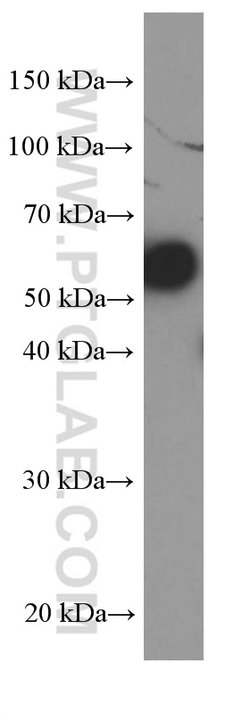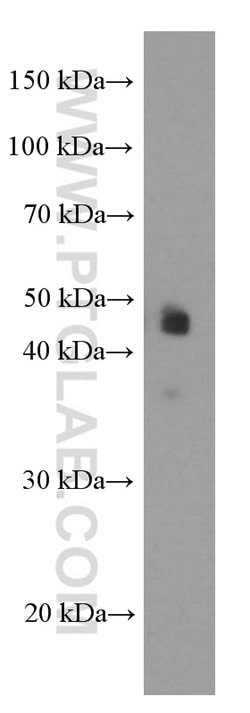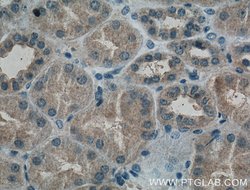missing translation for 'onlineSavingsMsg'
Learn More
Learn More
PAI-1 Mouse anti-Human, Porcine, Clone: 1H4A5, Proteintech
Mouse Monoclonal Antibody
140.00€ - 399.00€
Spécification
| Antigène | PAI-1 |
|---|---|
| Clone | 1H4A5 |
| Concentration | 1 mg/mL |
| Applications | Immunocytochemistry, Immunofluorescence, Immunohistochemistry (Paraffin), Western Blot |
| Classification | Monoclonal |
| Code produit | Marque | Quantité | Prix | Quantité et disponibilité | |||||
|---|---|---|---|---|---|---|---|---|---|
| Code produit | Marque | Quantité | Prix | Quantité et disponibilité | |||||
|
16847975
|
Proteintech
66261-1-IG-20UL |
20 μL |
140.00€
20µL |
Expédition estimée: 06-05-2024 Connectez-vous pour voir le stock disponible |
Veuillez vous connecter pour pouvoir commander cet article. Besoin d'un compte web? Créer le vôtre dès maintenant! | ||||
|
16837975
|
Proteintech
66261-1-IG-150UL |
150 μL |
399.00€
150µL |
Expédition estimée: 06-05-2024 Connectez-vous pour voir le stock disponible |
Veuillez vous connecter pour pouvoir commander cet article. Besoin d'un compte web? Créer le vôtre dès maintenant! | ||||
Description
PAI1 (plasminogen activator inhibitor 1) belongs to serine protease inhibitor superfamily, and is the principal inhibitor of tissue-type and urokinase-type plasminogen activators (tPA and uPA). Platelets are the main source of the circulating PAI11, but it is synthesized and secreted by many tissue and cell types, including fibroblasts, smooth muscle cells, endothelial cells, hepatocytes, and inflammatory cells. Expression of PAI11 can be regulated at the transcriptional level by many factors including growth factors, cytokines, hormones, inflammatory factors, glucose or lipid metabolites, vascular tone regulating factors, chemicals, and other environmental or physical factors. PAI1 is present at increased levels in various disease states, and has been linked to an increased occurrence of thrombosis in obesity, thrombophilia and the metabolic syndrome. Defects in PAI-1 are characterized by abnormal bleeding. PAI1 mediates inhibition of fibrinolysis by inhibiting the activity of plasminogen activator, and may promote neuronal survival. Other defects in PAI1 are the cause of plasminogen activator inhibitor-1 deficiency (PAI-1 deficiency). Alternatively spliced transcript variants encoding different isoforms of PAI1 have been found.Spécification
| PAI-1 | |
| 1 mg/mL | |
| Monoclonal | |
| Liquid | |
| RUO | |
| PBS with 50% glycerol and 0.02% sodium azide; pH 7.3 | |
| PAI, PAI 1, PAI1, PLANH1, Serpin E1, SERPINE1 | |
| SERPINE1 | |
| IgG1 | |
| Protein G | |
| Antibody |
| 1H4A5 | |
| Immunocytochemistry, Immunofluorescence, Immunohistochemistry (Paraffin), Western Blot | |
| Unconjugated | |
| Mouse | |
| Human, Porcine | |
| P05121, P79335 | |
| 396945, 5054 | |
| PAI-1 Fusion Protein Ag22411 | |
| Primary | |
| -20°C | |
| SERPINE1 |





